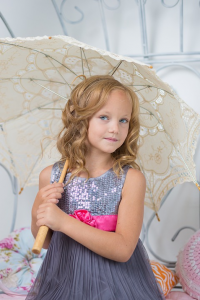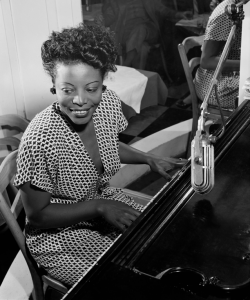How to Prepare Your Music and Talk to an Accompanist
Evan Teich | September 11, 2016
Whether you’re auditioning for a regional production of South Pacific or the pre-Broadway workshop of the next Hamilton (Hamilton II: Peggy’s Revenge), you need to prepare your music and be able to confidently speak to an accompanist.
Let’s start with your sheet music. Sheet music is a wonderful tool as it allows you to communicate with the person playing the piano clearly and efficiently. Sheet music is also a coy and dangerous mistress because there is potential for disaster!
Step 1: Find the sheet music for the song you are going to sing. Just because the accompanist knows “Younger Than Springtime” by heart, doesn’t mean that s/he will be able to play it from memory (in your key) after four hours of playing auditions. Set yourself up for success by having the things you need.

Tabitha is literally younger than springtime.
Step 2: Make sure your music is incredibly clean and legible. It’s best to keep separate copies of each song for a 16-bar, 32-bar, and full song audition. If you have more than one cut marked in the same piece of music, there’s potential for the pianist to misread the cut and start or stop in the incorrect place, leaving you looking unprepared. If you start your cut in the middle of a song, make sure to write the title of the song at the top of the page. If I know what song it is, usually I can be ready to start right away. If I can’t tell, my instinct is to flip pages back until I see the title, which eats up time. When copying music from an oversized book, make sure to reduce it. The magic ratio here is usually 93%. Telling the copy machine to reduce the image by this ratio ensures that all the notes on the page will copy.
Step 3: Put the song in the key for you. If you don’t sing the song in the key that it’s written, please transpose it or hire someone to transpose it. Once again, just because the accompanist can transpose on sight, doesn’t mean that they’ll want to be your best friend when you ask them to play “Astonishing” in C-flat major.

“Did you say C-flat major?” Photo Credit: William P. Gottlieb 1917-2006
Step 4: Make sure that your binder is clean and organized. Most of the auditions I play are those that I’m also musically directing or casting. If you are someone I don’t know, I’m unlikely to consider you for a role if your binder has ripped pages and candy wrappers popping out of every nook and cranny. What I love to see are dividers between songs, a clearly marked table of contents and extra resumes and headshots in the front pocket of the binder so I can learn more about you while you’re doing your monologue or talking to the people behind the table.
Once your sheet music and binder are at their best, and you’ve gotten up early and dreamed your musical theatre dreams, it’s time to get to the audition and talk to the accompanist.
First off, the pianist wants you to be good. The pianist is your friend. The pianist wants you to be the person they are looking for. The pianist wants you to be a fantastic singer that is a joy to collaborate with. The pianist wants to dance with you on the opening night party of your big hit show. Okay, some pianists don’t care either way, but there will always be one jaded person lurking in the corner with their thumb in a pie. Your job is to be kind to them anyway because this business is small and theatre people talk!
The goal of your conversation with the pianist is to convey the necessary information in a pleasant, succinct, and efficient way. Say hello, introduce yourself, put your binder on the piano and open your binder to the page you’re singing from.
Now it’s time to give a tempo. Here are terrible ways to give the tempo and annoy your new musical collaborator: clap, snap, hit the piano, hit the wall, or hit anything within reach. Even if you are a conductor, don’t conduct at the pianist. First off, you’re too close in proximity and it’s uncomfortable and not the most efficient way to win here. Simply sing a line or two of your song. If the pianist has questions, they will ask. Remember, unless it’s brand new or a secret the accompanist probably knows the song. Even then, we might know it because most of us are nerds who can’t help ourselves.

This is my tempo!
If there’s anything unusual in your cut, i.e., huge stops in the music, rubato sections, etc., make sure to explain that to your pianist before you sing. Then take the room, slate, and nod to your pianist when you’re ready for him or her to start playing. Sing your song, be brilliant, say “thank you” to the room, and thank the pianist and leave. Seriously. Even if your pianist had pie plate hands and played your song like a drunken baby, you need to politely say thank you before leaving.
Finally, here’s the number one mistake I see in the room: You forget your binder! Please remember to get your binder from the piano. It looks bad when you get halfway out the door and then say, “Oh crap, I forgot my binder...why do I ruin everything OMG!?” Especially after you’ve had a lovely audition and everyone in the room is considering where they can put you in their season.
Last Updated: August 16, 2023
